Using positive psychology to support addiction treatment
August 1, 2025
Harnessing Hope: The Power of Positive Psychology in Addiction Recovery

Reframing Recovery with Strengths and Positivity
Traditionally, addiction treatment has focused on managing symptoms, craving, and behavioral change. However, emerging evidence suggests that integrating positive psychology principles can revolutionize recovery approaches. By emphasizing strengths, fostering positive emotions, and building meaningful life components, this paradigm shift encourages not only overcoming addiction but thriving beyond it. This article explores how positive psychology frameworks, such as PERMA, and specific therapeutic techniques can empower individuals on their journey to sustained recovery.
Understanding Positive Psychology and Its Relevance to Addiction Recovery
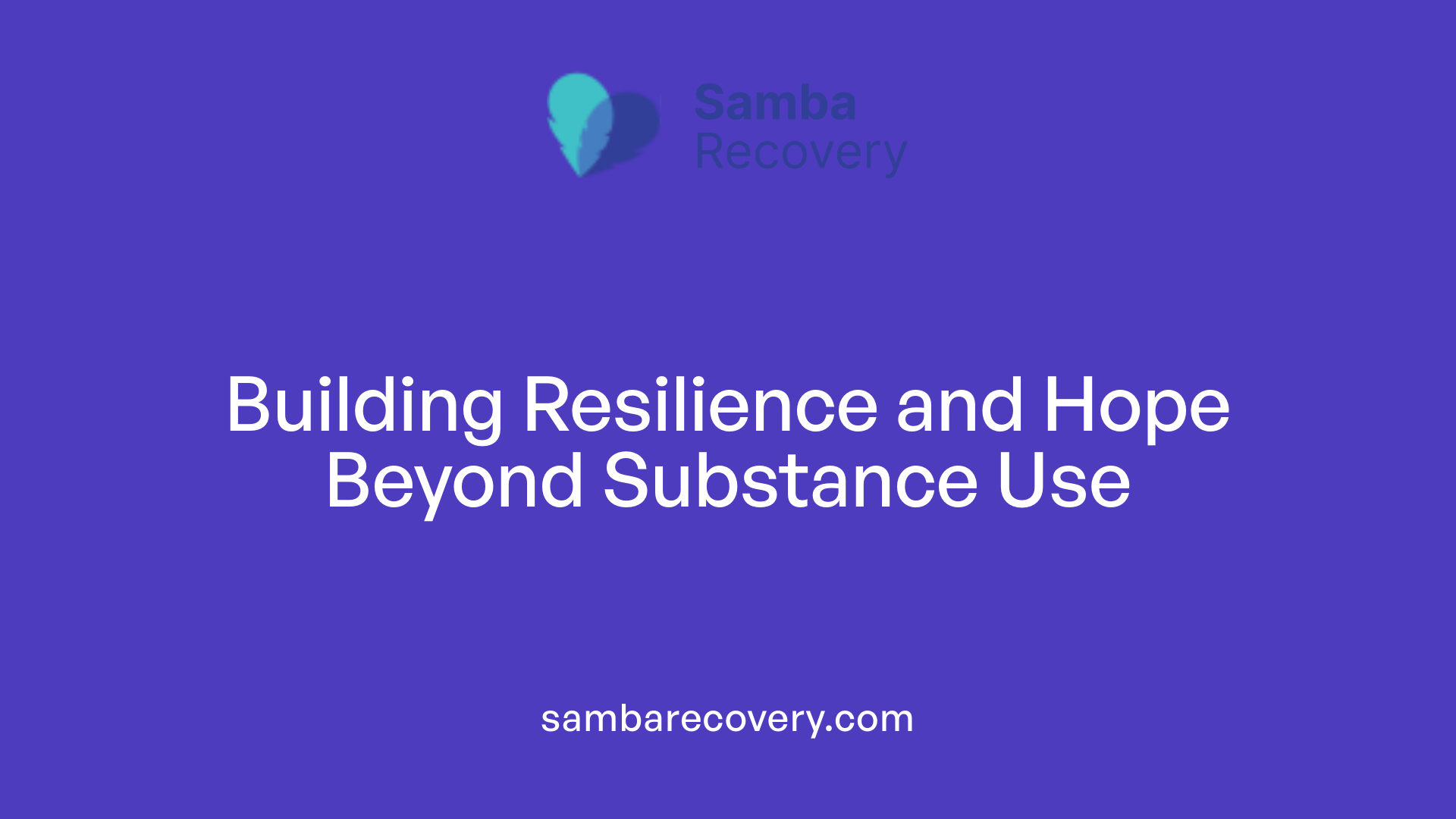
How can positive psychology principles support addiction recovery?
Positive psychology is the scientific study of the strengths and virtues that enable individuals and communities to flourish. Unlike traditional approaches that often focus on managing deficits or symptoms, positive psychology emphasizes cultivating positive emotions, resilience, and personal traits such as hope, gratitude, and purpose.
In the context of addiction recovery, these principles can be profoundly supportive. They help shift the focus from merely avoiding relapse to fostering a thriving, meaningful life beyond substance use. Through specific practices like gratitude exercises, mindfulness, and strength-building, individuals can develop a resilient outlook that sustains their recovery journey.
Research shows that cultivating positive affect reduces stress and cravings, which are common triggers in addiction. Techniques such as savoring joyful moments, engaging in rewarding activities, and building supportive relationships enhance recovery capital—the internal and external resources necessary for maintaining sobriety.
Therapies rooted in positive psychology, including positive psychotherapy, encourage individuals to identify and pursue meaningful life goals. This not only boosts motivation but also fosters a sense of purpose and engagement, crucial for long-term well-being.
Many interventions, like the 'Best Possible Self' exercise or gratitude practices, have been tested and show strong evidence of boosting happiness and life satisfaction. These activities are brief, accessible, and can be integrated into daily routines, making them practical tools for recovery.
Overall, embedding positive psychology strategies into addiction treatment supports individuals in developing a hopeful, forward-looking mindset. This mindset enhances resilience, resilience, and the ability to thrive despite challenges, significantly improving the chances of sustained recovery and a satisfying, meaningful life post-addiction.
Theoretical Frameworks Supporting Positive Psychology in Addiction Treatment
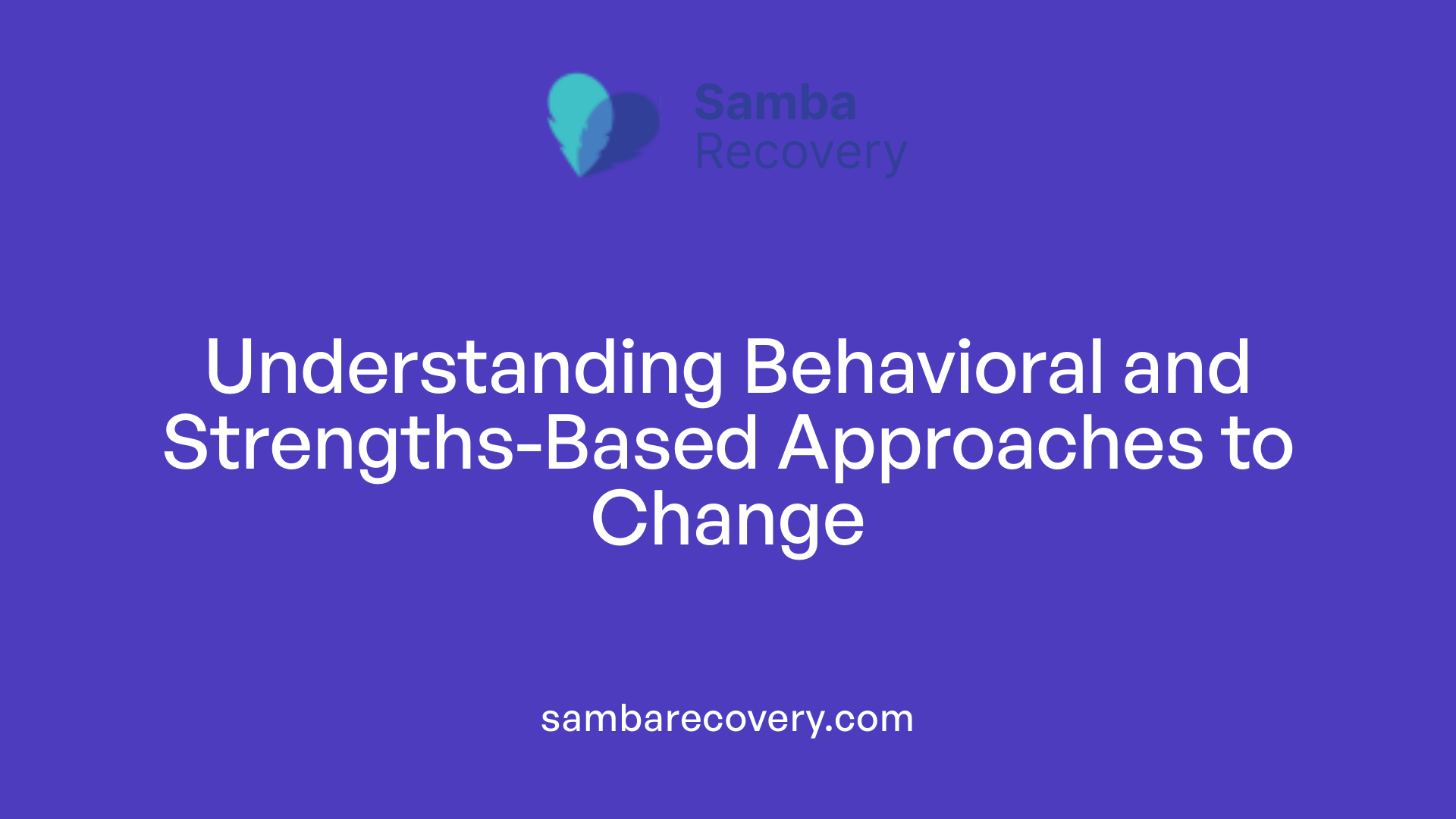
What is the PERMA model and how does it support recovery?
The PERMA model, developed by psychologist Martin Seligman, describes five essential elements for well-being: positive emotions, engagement, relationships, meaning, and achievement. In addiction recovery, these elements help individuals rebuild a fulfilling life by focusing on what brings happiness and purpose aside from substance use.
Positive emotions can be cultivated through practices like gratitude exercises or savoring joyful moments. Engagement involves participating in activities that absorb attention and foster flow states. Healthy relationships provide social support and connectedness, which are crucial during recovery. Finding a sense of meaning, whether through personal growth, helping others, or spiritual pursuits, can motivate continued sobriety. Achievements, including setting and reaching goals, reinforce self-efficacy.
This model guides therapists to develop holistic treatment plans that promote well-being across these domains, reducing reliance on substances as sources of fulfillment.
How does the view of addiction as a behavioral disorder support positive change?
Reframing addiction from a disease to a behavioral disorder emphasizes the possibility of change and recovery. This perspective aligns with positive psychology principles by focusing on strengths, adaptive behaviors, and growth efforts.
It suggests that addictive behaviors are learned responses—patterns that can be unlearned or replaced through positive interventions. This approach fosters hope and empowerment rather than despair or stigma.
Therapies based on this model encourage individuals to identify their strengths, set meaningful goals, and engage in constructive activities, supporting sustainable recovery. The emphasis on behavioral change complements positive psychology strategies aimed at building resilience and a hopeful outlook.
What research links strengths, hope, and gratitude to better recovery outcomes?
Numerous studies have shown that personal strengths such as resilience, temperance, and perseverance are associated with reduced substance use and improved recovery rates. Traits like hope and gratitude also play vital roles.
Research indicates that fostering hope can increase motivation, reduce feelings of hopelessness often associated with addiction, and improve mental health. Gratitude interventions—like recognizing positive aspects of life—have been shown to decrease negative affect and cravings.
Empirical evidence from interventions like gratitude journals, strength inventories, and future-oriented visualization exercises suggests that cultivating these traits enhances psychological well-being. This, in turn, reduces risk factors for relapse, increases engagement with treatment, and supports long-term sobriety.
While promising, ongoing research is necessary to establish standardized protocols and assess long-term benefits of integrating these positive psychology components into addiction care.
| Framework/Concept | Description | Evidence/Impact |
|---|---|---|
| PERMA Model | Focuses on five well-being domains to foster comprehensive happiness | Supports rebuilding positives beyond substances |
| Behavioral Perspective | Addiction as learned behavior that can change | Encourages strengths-based, hopeful approaches |
| Strengths and Hope | Traits linked to resilience and recovery | Associated with lower relapse rates |
| Gratitude Practices | Recognize and appreciate positive aspects of life | Reduce negative affect, enhance motivation |
Understanding these frameworks underscores the potential for positive psychology to enrich addiction treatment, promoting sustainable recovery through a focus on positive growth and resilience.
Effective Techniques and Interventions Using Positive Psychology
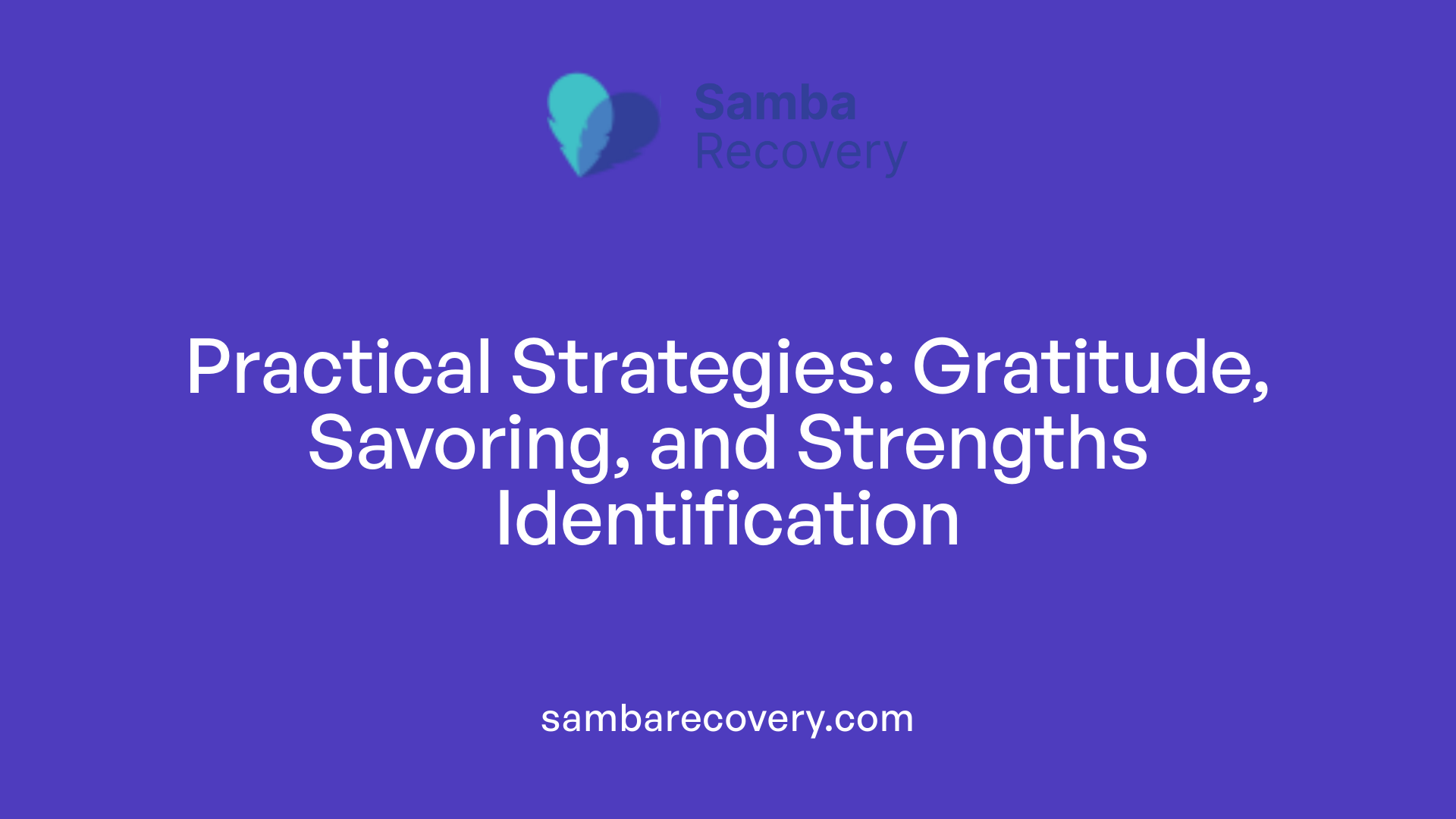
What methods and techniques of positive psychology are used to support individuals with addiction?
Positive psychology offers a variety of practical tools and exercises that can significantly aid individuals on the path to recovery. One common approach involves cultivating positive emotions through activities like gratitude exercises, savoring positive moments, and reminiscing about happy experiences. For example, exercises such as “Reliving Happy Moments,” “Savoring,” and “Rose, Thorn, Bud” help boost in-the-moment happiness and strengthen motivation to stay sober.
In addition, strengths identification and optimism training are crucial techniques. These methods help individuals recognize their personal virtues and develop a hopeful outlook for the future. By focusing on their inherent capacities, clients can build resilience and a sense of self-efficacy, which are vital for long-term recovery.
Mindfulness practices and engagement in meaningful activities are also emphasized. These strategies encourage clients to be present, manage stress, and find purpose beyond substance use. Cultivating meaningful relationships and pursuing personal goals foster a positive mindset that supports sustained sobriety.
These positive psychology interventions are often integrated with established therapies like Cognitive-Behavioral Therapy (CBT) and Acceptance and Commitment Therapy (ACT). Combining these approaches enhances coping skills, prevents relapse, and promotes overall well-being.
Recent research demonstrates that even brief, self-administered exercises can be effective. For example, participants practicing gratitude or savoring reported increased happiness and improved recovery outcomes. Because these techniques are simple, enjoyable, and easy to incorporate into daily routines, they serve as valuable supportive tools in addiction treatment.
The Benefits and Effectiveness of Positive Psychology Interventions
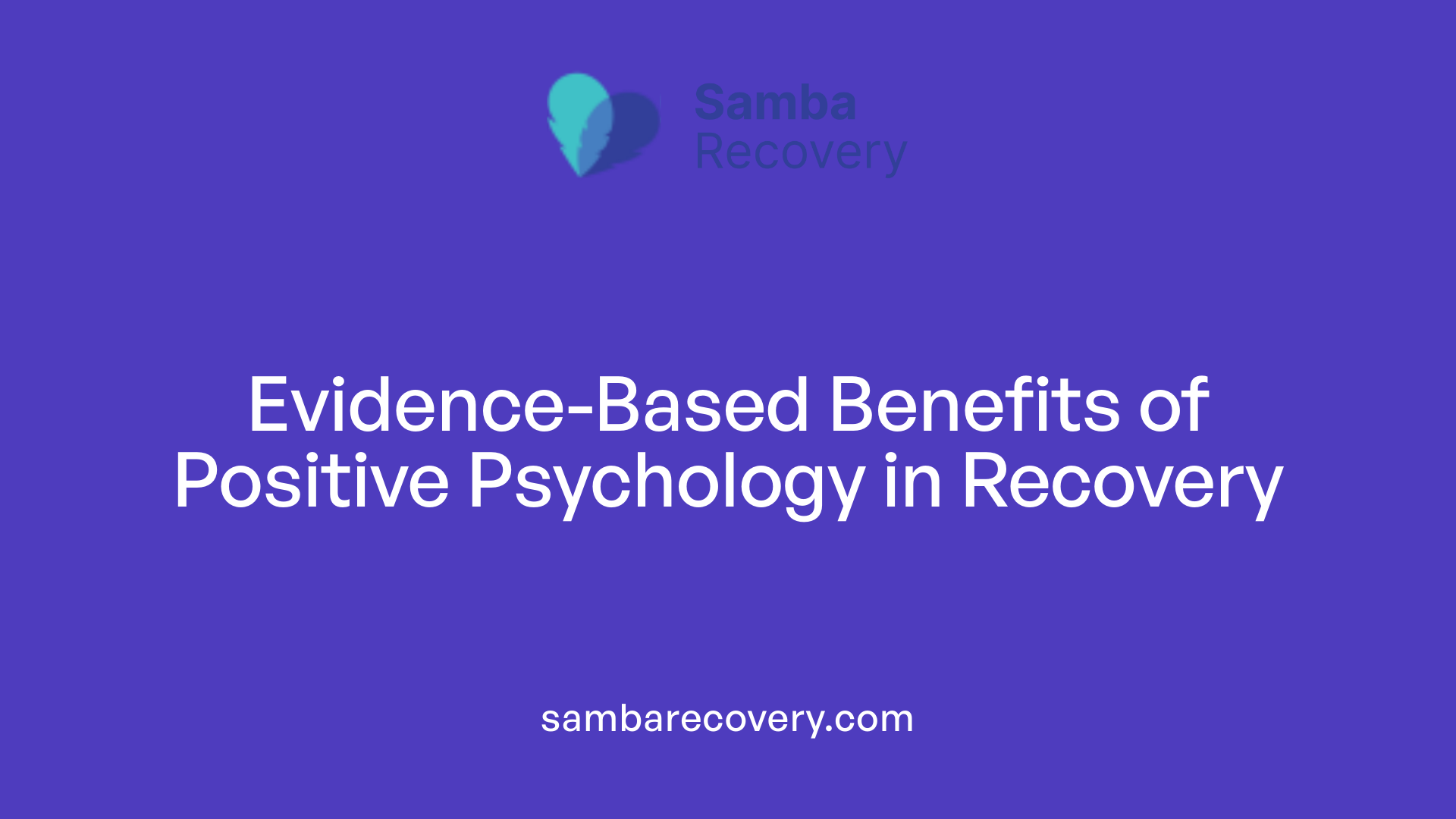
How do positive psychology interventions enhance addiction recovery?
Positive psychology interventions are designed to improve well-being by emphasizing strengths, positive emotions, and meaningful goals. In addiction recovery, these practices help individuals rebuild a positive mindset, which is essential for long-term sobriety.
One of the primary benefits is the increase in positive emotions such as happiness, gratitude, and hope. Exercises like 'Reliving Happy Moments,' 'Savoring,' and 'Rose, Thorn, Bud' have shown to boost in-the-moment happiness and help individuals focus on joyful experiences. This shift encourages a more hopeful outlook and creates a resilient mindset to cope with the challenges of recovery.
How do they contribute to reducing cravings and stress?
By fostering positive emotions and self-awareness, these interventions aid in managing cravings and reducing stress levels. Techniques such as mindfulness and gratitude exercises help individuals become more attuned to their internal states, recognize triggers early, and develop healthier coping mechanisms. Reduced stress and improved emotional regulation lower the likelihood of relapse triggered by emotional upheavals.
How do these interventions support building hope, purpose, and social connections?
Building a sense of purpose and meaningful relationships is central in positive psychology. Activities like setting future goals ('Best Future Self') and engaging in community or supportive groups enhance social bonds and reinforce feelings of belonging. These connections, along with a sense of purpose, foster resilience, motivate sustained recovery, and buffer against negative thoughts or despair.
What does empirical research reveal about their effectiveness?
Multiple studies support the positive impact of these interventions. For example, randomized controlled trials have demonstrated that brief exercises, taking around four minutes daily, can increase happiness and overall psychological well-being. Participants often report feeling more satisfied with life and more committed to sobriety.
Additionally, organizations such as the Hazelden Betty Ford Foundation have found that gratitude practices can lower negative affect while increasing positive affect among individuals in outpatient treatment for alcohol use disorder. Clinicians like Michael John Theron have integrated positive psychology tools—such as the Positive Psychology Toolkit©—into their work, observing significant improvements in clients’ confidence and outlook.
Incorporating positive psychology into standard treatment plans
These approaches complement traditional therapies like Cognitive-Behavioral Therapy (CBT) and mindfulness practices. They are adaptable, short in duration, and can be integrated into daily routines to reinforce progress. For instance, 'Gratitude Interventions' and 'Inventory of Strengths' reinforce positive self-image, resilience, and motivation.
In summary, positive psychology offers a powerful, evidence-based framework that addresses the emotional and motivational aspects of addiction recovery. It guides individuals toward a thriving, meaningful life, reducing reliance on substances and supporting sustainable recovery.
Real-Life Applications and Case Examples
Can you provide practical examples of how positive psychology is applied in addiction treatment?
Positive psychology enhances addiction treatment by focusing on fulfilling individuals’ psychological needs through the five PERMA components—positive emotions, engagement, relationships, meaning, and accomplishments. Therapists use various interventions such as strength-based coaching, gratitude journaling, and savoring exercises to foster positive feelings and behaviors.
For example, gratitude journaling, known as the ‘Three Good Things’ exercise, helps clients recognize and savor positive experiences, which boosts their overall happiness and resilience. Strengths-based approaches involve identifying personal traits like hope, hope, and kindness, and leveraging them to build confidence in recovery.
Behavioral activation encourages clients to engage in enjoyable and meaningful activities, directly increasing positive emotions and reducing cravings. Mindfulness and savoring practices help clients appreciate present-moment experiences, thereby cultivating a positive mindset beyond the desire for immediate gratification from substances.
Supportive relationships are cultivated through group therapies and community involvement, addressing social needs that substances often temporarily satisfy. Additionally, goal-setting exercises such as ‘Best Possible Self’ inspire clients to envision and work toward fulfilling futures.
By integrating these positive psychology practices, treatment not only aims to eliminate substance use but also promotes a meaningful, engaged, and happy life, which is essential for long-lasting recovery.
Future Directions and Challenges in Applying Positive Psychology in Addiction Recovery
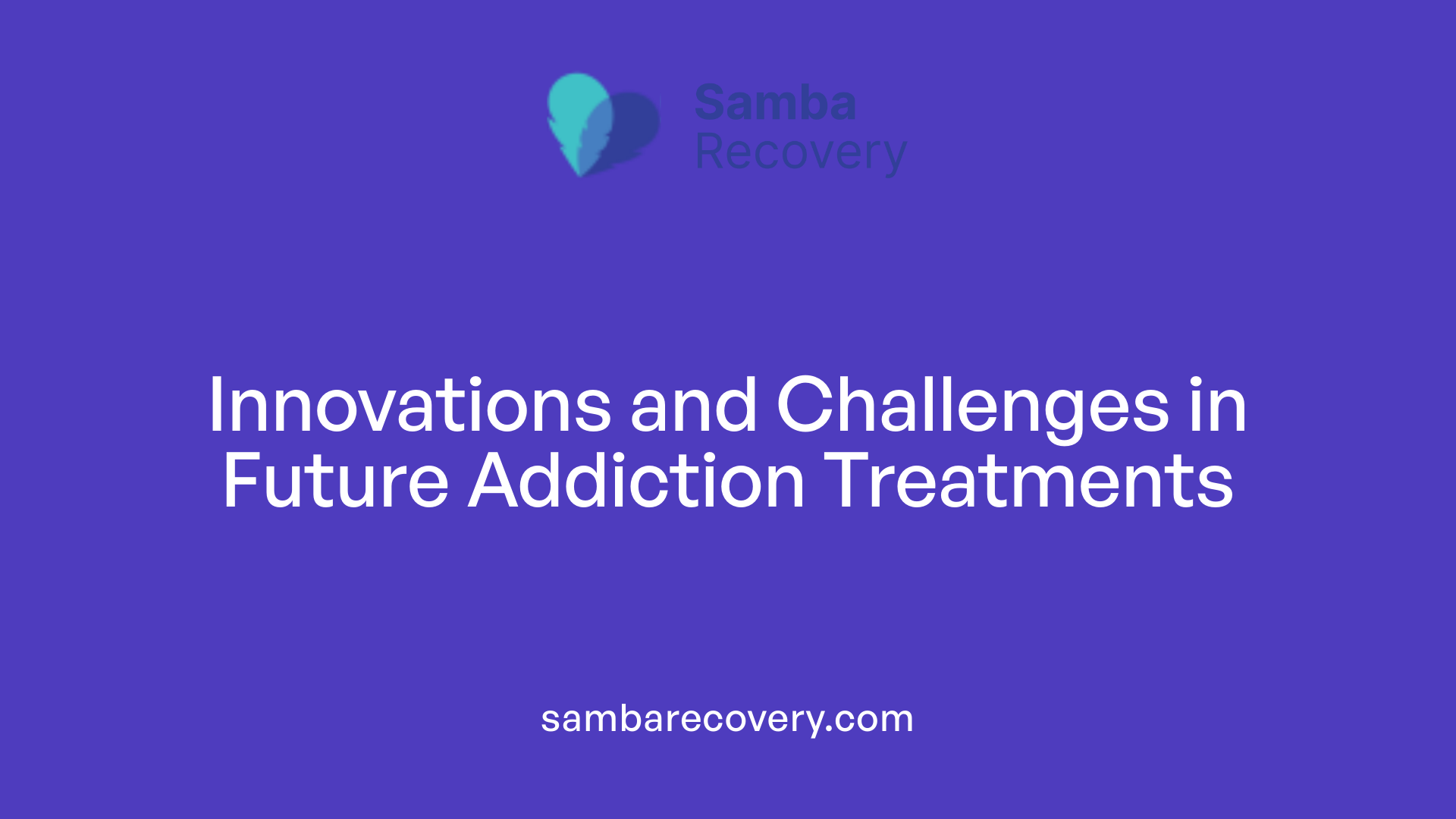
What are the future directions and challenges in applying positive psychology to addiction recovery?
The integration of positive psychology into addiction treatment holds promising potential, but several important directions and challenges need to be addressed.
One significant future path is conducting more rigorous, long-term studies. Many current findings are preliminary, and establishing clear evidence of causality and sustained benefits requires longitudinal research over extended periods. These studies can help determine which positive psychology interventions are most effective and for whom.
In addition, integrating positive psychology frameworks with existing treatment models is essential. Approaches like Cognitive-Behavioral Therapy (CBT), motivational interviewing, and medication-assisted treatments are well-established. Combining these with strengths-based, positive psychology techniques—such as gratitude exercises, envisioning a future self, and fostering resilience—can create comprehensive programs that address both the psychological and behavioral aspects of recovery.
Technology offers exciting opportunities for expanding access and personalization. Mobile apps, virtual reality, and online support communities can deliver positive psychology interventions in flexible and engaging ways. These tools can be particularly helpful for individuals who face barriers to traditional face-to-face therapy or who prefer self-guided approaches.
Furthermore, cultivating community involvement and cultural sensitivity is crucial. Tailoring interventions to fit diverse cultural backgrounds and involving community resources can improve relevance and effectiveness. Community-based programs that emphasize collective well-being and social support can reinforce positive change.
However, several challenges persist. One obstacle is overcoming skepticism from clinicians who are used to traditionally deficit-focused models of addiction. Educating practitioners about the benefits of adopting a strengths-based, positive outlook is vital.
Sustained engagement with positive psychology practices is also a concern. Maintaining motivation over time, especially when facing ongoing recovery challenges, demands continuous support and reinforcement.
In summary, the future of positive psychology in addiction recovery lies in expanding empirical evidence, integrating with established treatments, leveraging technology, and ensuring cultural and community relevance. Addressing these challenges can help maximize the potential of positive psychology to support lasting recovery and well-being.
Summary and Final Thoughts
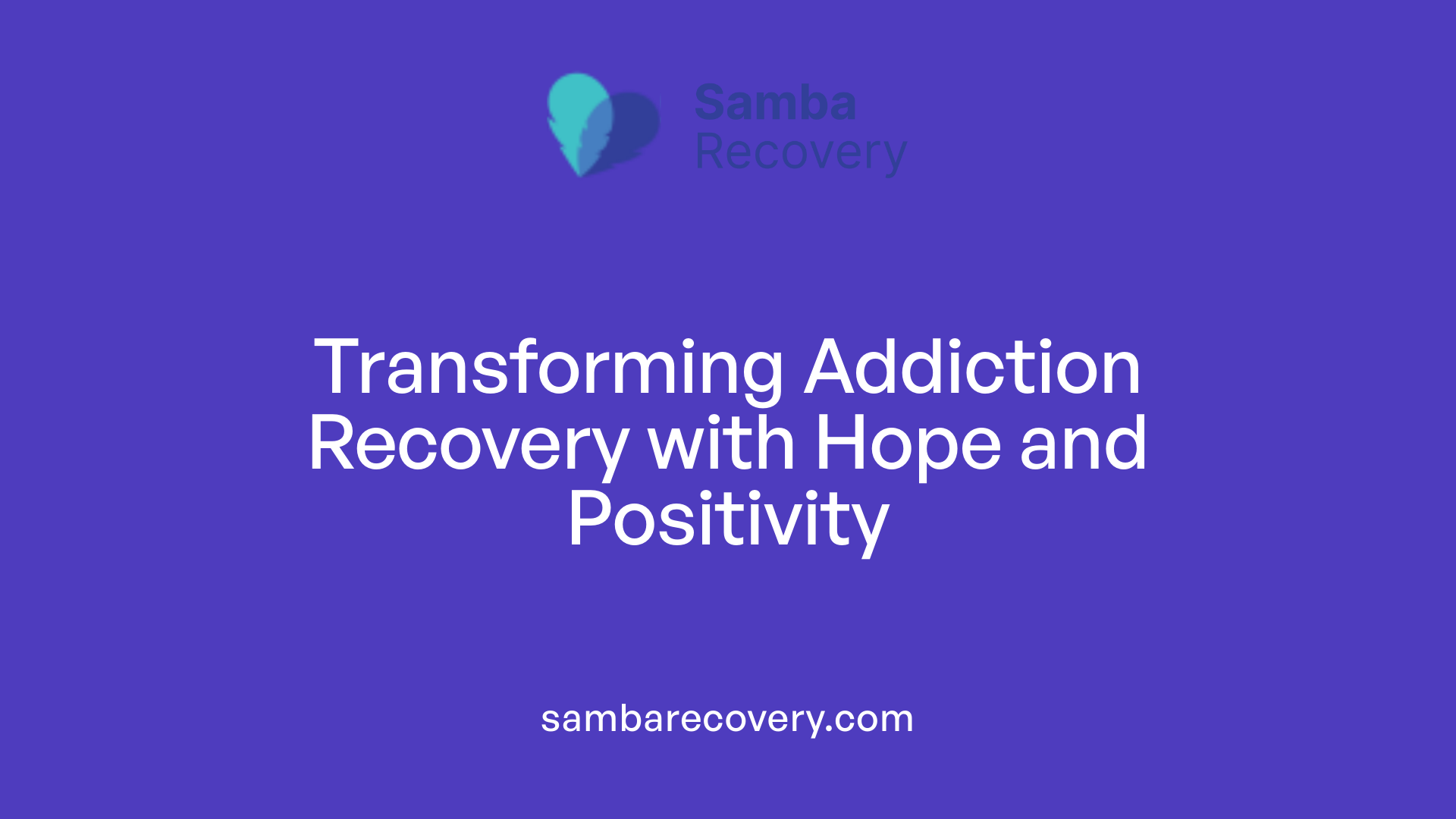
Recap of positive psychology’s role in addiction recovery
Positive psychology plays a meaningful role in supporting addiction recovery by emphasizing strengths, hope, and meaningful experiences. Its principles shift the focus from merely managing cravings and symptoms to fostering resilience and well-being.
Rather than viewing addiction solely as a disease, a positive psychology approach helps individuals reframe their life story, promoting a sense of agency and empowerment. This perspective encourages people to envision a future beyond substance use, guiding them toward achievable goals and enriching relationships.
Emphasis on strengths, hope, and positive experiences
A central aspect of positive psychology is its focus on cultivating positive emotions, engagement, relationships, meaning, and accomplishments — collectively known as the PERMA model. When people integrate activities that enhance these domains, they often experience increased happiness, purpose, and social bonds.
Interventions such as gratitude exercises, savoring happy moments, and future-oriented visualization have shown to boost positive emotions and motivation. These practices are simple, quick, and can be seamlessly incorporated into daily routines, making them accessible tools in recovery.
Research indicates that fostering positive experiences and traits like hope and character strengths can lower the risk of relapse and support long-term sobriety. Participants practicing these exercises often report improved mental wellness, greater life satisfaction, and a more positive outlook on their recovery journey.
Call for further research and integration
Despite promising findings, more empirical studies are needed to fully understand and optimize positive psychology interventions in addiction treatment. Existing research suggests that integrating techniques like gratitude, goal-setting, and resilience-building holds substantial potential.
The ongoing development of evidence-based practices can help treatment providers incorporate positive psychology into standard care. Combining these approaches with traditional therapies, such as CBT and mindfulness, can offer a holistic, strengths-based pathway to sustained recovery.
Ultimately, embracing positive psychology can transform addiction treatment, fostering hope, resilience, and a thriving life beyond substance use.
Fostering a Flourishing Future with Positive Psychology
Incorporating positive psychology principles into addiction treatment offers a promising avenue for transforming recovery experiences. By emphasizing strengths, fostering hope, and nurturing positive emotions, clinicians can help individuals not only achieve sobriety but thrive in their renewed lives. As research progresses and innovative practices develop, the integration of these evidence-based approaches holds great potential to redefine how we support those overcoming addiction, ultimately leading to more resilient, fulfilled, and flourishing lives.
References
- The Use of Positive Psychology in Addiction Treatment
- A positive psychology framework for why people use substances
- Do self-administered positive psychology exercises work in persons ...
- The Power of Positive Psychology: Recovering From Addiction
- Positive Psychotherapy for Addiction Recovery — Anabel Salimian
- Michael John Theron: Beating Addiction With Positive Psychology
- Review of the Application of Positive Psychology to Substance Use ...
- Unlocking the Mind: The Power of Psychology in Addiction Treatment
- Transforming Your Mindset - Positive Psychology in Addiction ...
- A randomized feasibility study of a positive psychology journaling ...
About Samba Recovery
Start your treatment today!

Featured Articles
Read the latest addiction news and recovery tips from our blog.
Samba Recovery never miss an opportunity
Substance use may be part of your story, but it doesn’t have to be the rest of it. Sustainable recovery is possible and the best version of yourself is waiting at our Atlanta and Savannah, Georgia addiction recovery centers.
We’ll help you learn that the opposite of addiction is connection. We’ll give you skills to discover your self-worth and show you the tools for a life of hope and promise.
Contact us today!
We accept most major insurances
We partner with most major insurances, enabling you to access premier therapy services.










































































































